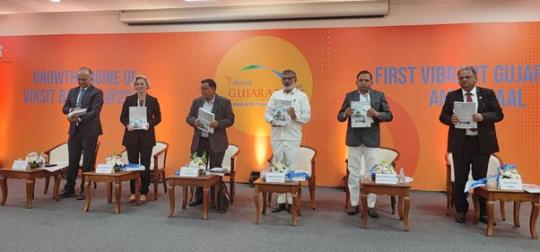Gujarat releases "Best Available Techniques Reference Document (BREF) for the Textiles Sector"

The Best Available Techniques Reference (BREF) document for the textile industry of Gujarat has officially set sail: On 12 January 2024, the Best Available Techniques (BAT) Reference (BREF) document, for the textile industry of Gujarat, was successfully released during the Vibrant Gujarat Global Summit 2024. This launch marked a significant milestone in Gujarat's journey towards pioneering sustainable development and eco-friendly manufacturing in its textile industry. Ms. Brigitte Zietlow and Ms. Almut Reichart from the German Environment Agency (UBA) also attended the ceremony.
This initiative aims to promote cleaner and greener practices in one of the world's largest textile manufacturing hubs and improve environmental compliance in the sector. This comprehensive document provides guidance and best practices for reducing environmental impact and improving sustainability in textile production. With the joint efforts, the project aims at laying the groundwork for piloting the application of the best available techniques in the textile sector by supporting in development of BAT Reference Documents for the textiles sector at the national level and for the State of Gujarat thus lowering environmental impacts and ensuring efficient use of resources.